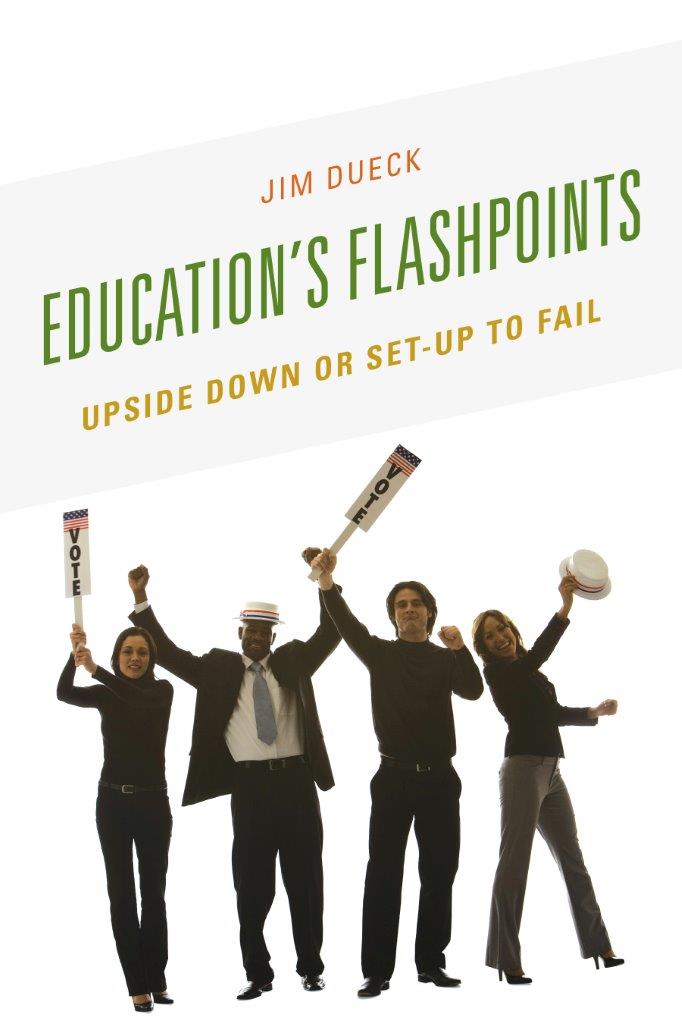Educations Flashpoints
Educations Flashpoints
Upside Down or Set-Up to Fail
Jim Dueck
ROWMAN & LITTLEFIELD
Lanham Boulder New York London
Published by Rowman & Littlefield
A wholly owned subsidiary of The Rowman & Littlefield Publishing Group, Inc.
4501 Forbes Boulevard, Suite 200, Lanham, Maryland 20706
www.rowman.com
Unit A, Whitacre Mews, 26-34 Stannery Street, London SE11 4AB
Copyright 2015 by Jim Dueck
All rights reserved. No part of this book may be reproduced in any form or by any electronic or mechanical means, including information storage and retrieval systems, without written permission from the publisher, except by a reviewer who may quote passages in a review.
British Library Cataloguing in Publication Information Available
Library of Congress Cataloging-in-Publication Data
Library of Congress Cataloging-in-Publication Data Available
ISBN 978-1-4758-1316-6 (cloth : alk. paper) -- ISBN 978-1-4758-1317-3 (pbk. : alk. paper) -- ISBN 978-1-4758-1318-0 (electronic)
 TM The paper used in this publication meets the minimum requirements of American National Standard for Information Sciences Permanence of Paper for Printed Library Materials, ANSI/NISO Z39.48-1992.
TM The paper used in this publication meets the minimum requirements of American National Standard for Information Sciences Permanence of Paper for Printed Library Materials, ANSI/NISO Z39.48-1992.
Printed in the United States of America
Preface
Education is a vital contributor to social well-being. There was a time not many decades ago when our schools and school systems were not under public scrutiny as they are today. Benevolent neglect enabled pernicious forces and retrogressive conditions to impede the progress of our children. Today, every practice is scrutinized and debated, and every conflict and tension has become a flashpoint in a politicized arena that demonstrates to a conflicted public the upside down nature of our educational system. Instead of serving the needs of children, educational oligarchy and opportunistic politicians have co-opted the agenda to serve their own interests.
The radicalization and fragmentation of a shared educational vision reflects a wider challenge in society. A leading lawyer in Canada, whose credentials included high-profiled cases heard by the Supreme Court in Canada, illustrated this in his reflections on recent changes in civil law. In his judgment, the court system no longer dispensed justice on the basis of a shared belief in what was right or wrong. Rather, judges today see themselves as mediators who look for a win/win resolution that represents the middle ground. He perceived this to be a misstep because right and wrong are deemed irrelevant in the pursuit of an amoral decision that seeks to avoid political or media flashpoints.
Sports, such as baseball, deal with a somewhat similar predicament where fact is routinely compromised. Until 2014, occasional wrong calls were considered acceptable because mistakes were thought to even out. Video replays demonstrate that umpires decisions are frequently incorrect. Players were wronged and fans cheated out of watching a fair contest whether or not their team benefits from the mistake. By way of contrast, professional tennis adopted video replays years ago to ensure fairness based on fact.
A similar scenario exists in the field of medicine where doctors routinely treat patients unfairly. A Canadian report concluded that older women with heart failure and other critical conditions received less life support and die in greater numbers than men in intensive-care units. However, opinion surveys conducted by the same researchers found that more than 93 percent of family doctors and orthopedic surgeons believed a patients gender had no bearing whatsoever on their decision to recommend or perform joint replacement.
In other words, an unfortunate disconnect is evident between the services these doctors think they provide and the ones they actually do. Whether this is intentional, which seems unlikely, or a human inability to assess ones actions objectively, unfairness is the result.
No other service sector in society is more negatively impacted by a failure to deliver desired services fairly than is education. Teachers and principals remind us constantly that they are working for the best interests of our children. The public accepts these proclamations at face value because they are unaware of the many nuances at play in a complex enterprise such as the education system. The publics lack of knowledge allows educators and, more importantly, their representatives to make self-serving decisions based on unchallenged and unjustified claims.
No one can serve two masters is a well-known saying; yet, some in our education system want the public to believe this is possible. Educators routinely claim they have the best interests of their students at heart because of an ability to set aside their own best interests. They want us to believe that their altruistic aspirations trump the human tendency to be self-centered. Reality is far different. When a conflict of interest arises, which is an inevitable, inherent biases crystallize into positions where selfishness prevails.
There are many educational issues that pit the main objectives of educators and their representatives against those of their clients, namely students, parents, and the public. The resulting flashpoint leaves all embroiled in the conflict feeling, If you arent for us, you are against us. Yes, there actually are many occasions when educators stand against their clients, especially students,and these disputes often negatively impact the educators ability to deliver effective and efficient services to their clients.
One of the primary reasons for this is that educators are unaware of their biases and what the suppressed influence and subliminal attitudes play in a conflict. Wounded and offended, especially when someone points out the errors and biases in their position, educators embrace attitudes that eventually have a negative consequence for students in the learning environment. Indeed, they feel downright insulted at any suggestion that they might be against their students.
Many contentious issues arose during my forty years in the educational system while focusing on accountability and transparency. Each role gave a different perspective on conflict, but a common theme was woven through it all: a collective mythology about reality exists in the educational sector and it negatively impacts our practices and decision-making process. It seems virtually impossible to implement an improvement strategy in a school or in the system that is not in conflict with some unfounded bias, which is in search of supporting data, or some strategy that will serve the workers, often at the detriment of the students.
Like the Supreme Court judges who no longer look for right and wrong but for expediency and public favor, a government official working for politicians is required to work with the system and to exercise discretion in revealing or discussing in public factual conclusions arising from empirical data. During my years as a leader in the school system and in a government department, it was considered impolitic, unwise, and inflammatory to introduce a perspective on effectiveness and efficiency that contradicted an entrenched, self-serving mythology.
It is difficult to work in leadership positions when workers in the system are so strongly opposed to any suggestion that they are subjugating students best interests to their own. Introducing ideas out of step with stakeholders is as close to educational heresy as it gets.
Next page

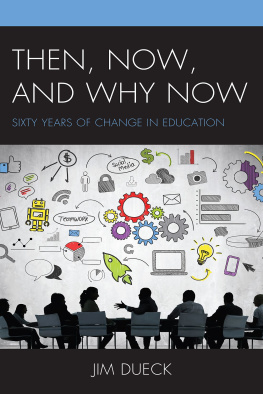
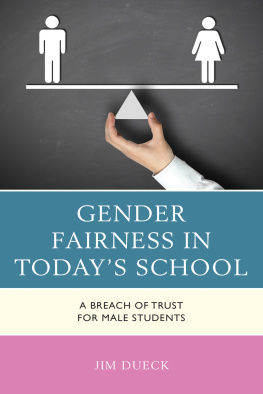

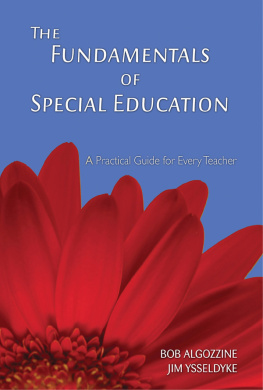
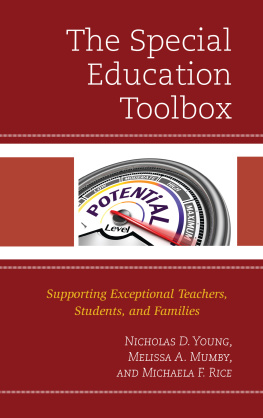
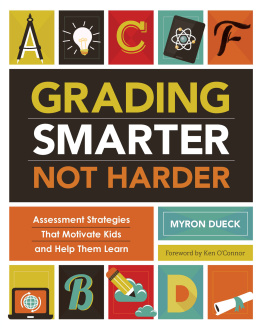
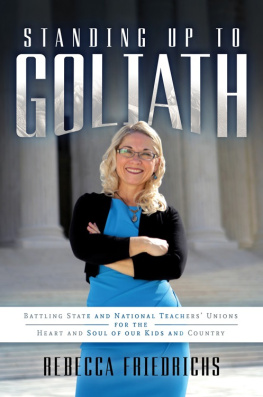
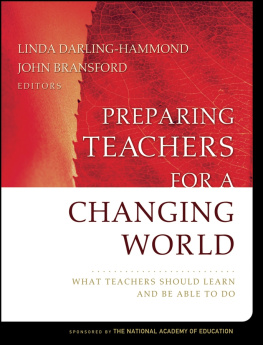
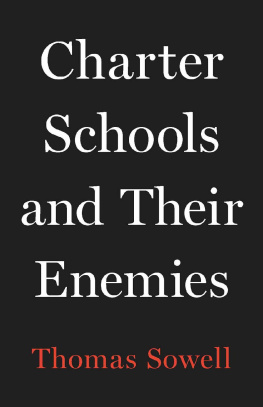
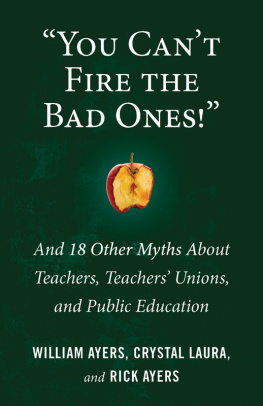
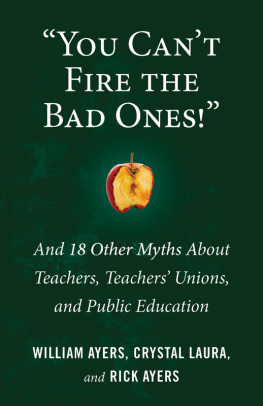
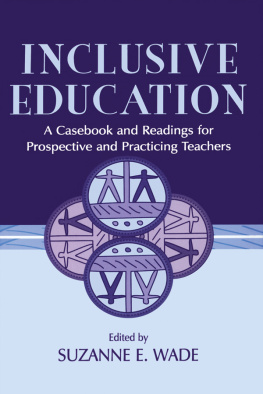
 TM The paper used in this publication meets the minimum requirements of American National Standard for Information Sciences Permanence of Paper for Printed Library Materials, ANSI/NISO Z39.48-1992.
TM The paper used in this publication meets the minimum requirements of American National Standard for Information Sciences Permanence of Paper for Printed Library Materials, ANSI/NISO Z39.48-1992.